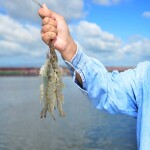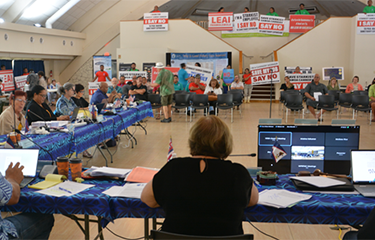Fishermen, the Western Pacific Regional Fishery Management Council (Wespac), StarKist Samoa cannery workers, and multiple U.S. federal and local government officials representing Pacific territories are all pushing back against NOAA’s plans for an expanded marine sanctuary around the Pacific Remote Islands Marine National Monument (PRIMNM).
In March 2023, the administration of U.S. President Joe Biden proposed the creation of a new marine sanctuary that would protect roughly 770,000 square miles of ocean, which if created, would be the largest marine protected area in the world.
But U.S. Representative Aumua Amata Coleman Radewagen, representing American Samoa, said at a Wespac meeting in Honolulu, Hawaii, the administration has failed to consult or engage with the U.S. Pacific territories on the MPA.
“The president boasted as if this were a designation review that was ending rather than beginning,” Radewagen said. “This action could devastate the economy of American Samoa, where 80 percent of all private sector jobs and exports are related to fishing and canning.”
American Samoa Governor Lemanu Mauga has also come out against the sanctuary.
“American Samoa is repeatedly left out of the conversation of what is best for our communities,” Mauga said. “We are disappointed that actions that could cripple the economy of a U.S. territory would be taken without consultation of its people.”
More than 1,200 StarKist Samoa cannery workers have also signed a petition opposing the federal proposal, Samoa News reported.
“We urge the [federal] administration to reconsider and reverse this expansion in order to safeguard the American Samoan fishing industry, protect the local economy, and promote sustainable fishing practices,” the workers' petition states.
Tuna canneries on American Samoa have had a tumultuous few decades. Chicken of the Sea closed its Pago Pago cannery in 2010 after U.S. Congress passed legislation in 2007 gradually raising the minimum wage for cannery workers. In 2014, Tri Marine International invested USD 70 million (then EUR 57.4 million) into a tuna cannery in American Samoa, only to close operations two years later. Two years later, StarKist signed a 10-year lease with Tri Marine to reopen the plant, but warned that a minimum wage hike could doom operations in the territory.
Wespac’s letter said the marine sanctuary proposal would threaten ...
Photo courtesy of the Western Pacific Regional Fishery Management Council








